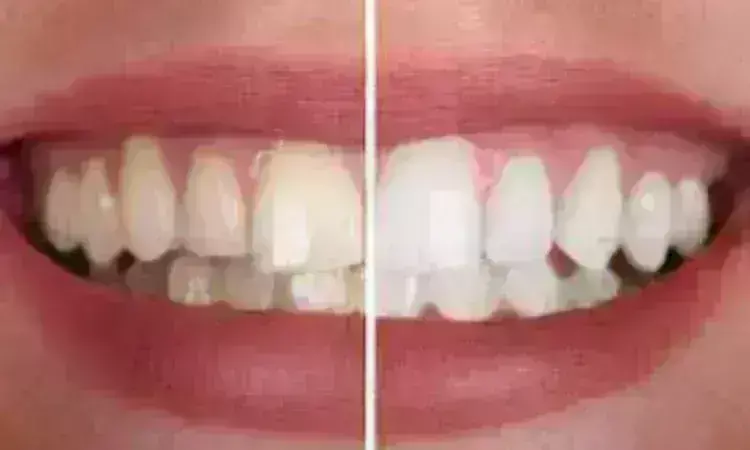- Home
- Medical news & Guidelines
- Anesthesiology
- Cardiology and CTVS
- Critical Care
- Dentistry
- Dermatology
- Diabetes and Endocrinology
- ENT
- Gastroenterology
- Medicine
- Nephrology
- Neurology
- Obstretics-Gynaecology
- Oncology
- Ophthalmology
- Orthopaedics
- Pediatrics-Neonatology
- Psychiatry
- Pulmonology
- Radiology
- Surgery
- Urology
- Laboratory Medicine
- Diet
- Nursing
- Paramedical
- Physiotherapy
- Health news
- Fact Check
- Bone Health Fact Check
- Brain Health Fact Check
- Cancer Related Fact Check
- Child Care Fact Check
- Dental and oral health fact check
- Diabetes and metabolic health fact check
- Diet and Nutrition Fact Check
- Eye and ENT Care Fact Check
- Fitness fact check
- Gut health fact check
- Heart health fact check
- Kidney health fact check
- Medical education fact check
- Men's health fact check
- Respiratory fact check
- Skin and hair care fact check
- Vaccine and Immunization fact check
- Women's health fact check
- AYUSH
- State News
- Andaman and Nicobar Islands
- Andhra Pradesh
- Arunachal Pradesh
- Assam
- Bihar
- Chandigarh
- Chattisgarh
- Dadra and Nagar Haveli
- Daman and Diu
- Delhi
- Goa
- Gujarat
- Haryana
- Himachal Pradesh
- Jammu & Kashmir
- Jharkhand
- Karnataka
- Kerala
- Ladakh
- Lakshadweep
- Madhya Pradesh
- Maharashtra
- Manipur
- Meghalaya
- Mizoram
- Nagaland
- Odisha
- Puducherry
- Punjab
- Rajasthan
- Sikkim
- Tamil Nadu
- Telangana
- Tripura
- Uttar Pradesh
- Uttrakhand
- West Bengal
- Medical Education
- Industry
Preemptive use of ibuprofen and desensitizer combo may decrease immediate tooth sensitivity after in-office bleaching

Preemptive use of ibuprofen and desensitizer combo may decrease immediate tooth sensitivity after in-office bleaching suggests a new study published in the Journal Of American Dental Association.
The authors evaluated the synergistic analgesic effect of preemptive administration of 400 mg of ibuprofen (IBU) and potassium fluoride 2% (KF2), both in isolation or combination, on the painful perception of tooth sensitivity after tooth bleaching.
Fifteen patients participated in this triple-blind, randomized, placebo-controlled clinical trial. The study used a crossover design for drug administration and a split-mouth design for desensitizer agent. Four paired groups were formed: IBU plus KF2 (IBU + KF2); IBU (IBU + placebo KF); KF2 (placebo IBU + KF2), and placebo (placebo IBU + placebo KF). The outcome measure was the perception of tooth sensitivity, assessed using a visual analog scale. Data were collected at 4 different times: immediately after tooth bleaching (baseline) and after 6, 30, and 54 hours. Statistical analysis was performed using the Friedman test and relative risk.Results: IBU plus KF2 was found to be more effective in reducing tooth sensitivity immediately after bleaching (baseline) compared with the placebo group (P < .05). The risk of experiencing moderate or severe tooth sensitivity was approximately 4 times higher in the placebo group than in the IBU plus KF2 group (relative risk, 4.00; 95% CI, 1.01 to 15.81; P = .025). The combined use of 400 mg of IBU and KF2 appears to be beneficial in managing postbleaching tooth sensitivity. It provides a superior analgesic effect compared with placebo. The preemptive administration of IBU plus KF2 reduces tooth sensitivity after tooth whitening when compared with placebo.
Keywords:
Preemptive use, ibuprofen, desensitizer, tooth sensitivity, in-office bleaching, Journal Of American Dental Association, Dental bleaching, tooth sensitivity, ibuprofen, NLB Lima, PH Sette-de-Souza, AHC Siqueira, SGA Costa, PVM Alves, FA Silvestre, NE Meneses, SL Santiago, RF Peixoto
Dr. Shravani Dali has completed her BDS from Pravara institute of medical sciences, loni. Following which she extensively worked in the healthcare sector for 2+ years. She has been actively involved in writing blogs in field of health and wellness. Currently she is pursuing her Masters of public health-health administration from Tata institute of social sciences. She can be contacted at editorial@medicaldialogues.in.
Dr Kamal Kant Kohli-MBBS, DTCD- a chest specialist with more than 30 years of practice and a flair for writing clinical articles, Dr Kamal Kant Kohli joined Medical Dialogues as a Chief Editor of Medical News. Besides writing articles, as an editor, he proofreads and verifies all the medical content published on Medical Dialogues including those coming from journals, studies,medical conferences,guidelines etc. Email: drkohli@medicaldialogues.in. Contact no. 011-43720751


